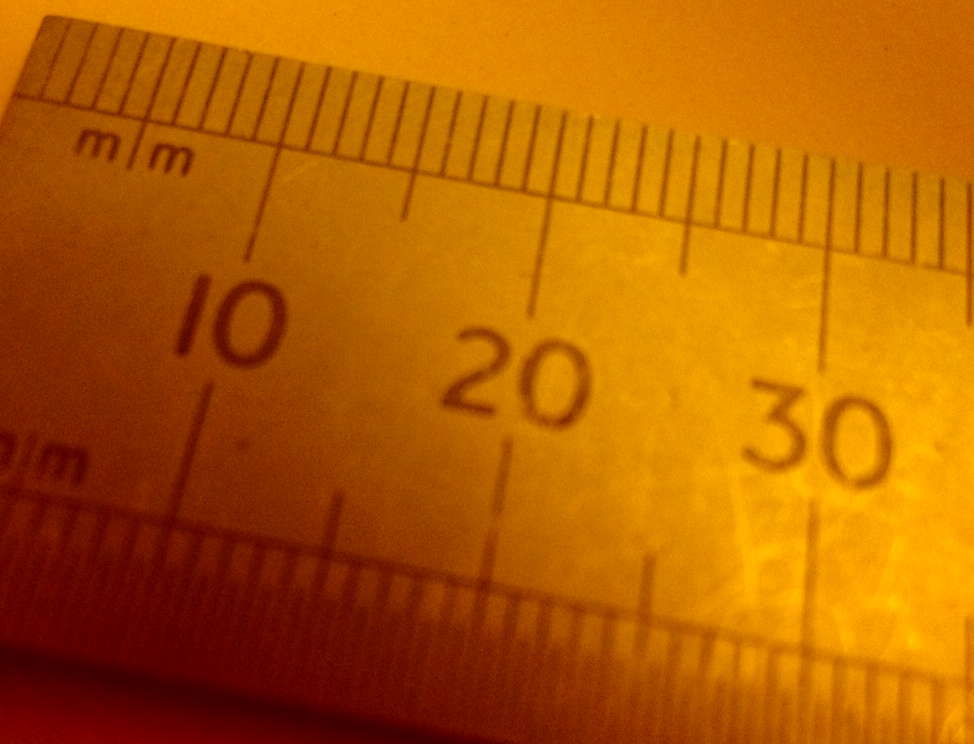Goal-orientated activity doesn’t just take place within a framework, it is the framework. Purposefulness doesn’t just take place within the context of the ‘mental map’ out of which were operating from, it is that map. Purposefulness can never be separated from our mental map of the world; it can never take us anywhere that isn’t on that map – it can never facilitate us in transcending our concrete descriptions of reality and this means that it can never actually relate us to reality…
It is necessary to point this out because it is the one that never occurs to us; if it did occur to us then this awareness would take the shine off our purposefulness in a big way. To chase after our goals is glorious, it is glorious because we are moving ahead, moving forward; it is glorious because we are ‘getting off our backside’ and reaching out into the world to see what is possible for us, to see what can be attained by us. It ceases to be so glorious when we see that we are only seeking ‘what lies on the map’, which means that it is – when it comes down to it – only ‘our own private obsession’! Being engrossed in the murk and squalor of our own private obsession doesn’t sound quite so glorious at all, naturally enough. We’re not ‘reaching out’ at all; far from it, we are forever consolidating the same old position.
We are forever making the same old point and the reason we have to keep on making it (the reason we’ll never get to the point where we no longer have to keep on making the same old point) is because if we don’t keep on making it then it won’t be a point. We have to assert what we’re asserting because if we don’t assert it then what we’re asserting will no longer exist! Every time we ‘make the point’ we feel that we are getting somewhere, we feel that we are gaining ground, we feel that we are improving things, but really we’re getting nowhere at all. We’re ‘running on the spot’ – we’re gaining nothing, for all that we keep on thinking that we are. There is no gain to be had in this game, no ‘happy outcome’…
This feeling that we have that we’re ‘getting somewhere’ (or ‘moving on’) via the successful attainment of our goals is a fundamental delusion. More than just a fundamental delusion, it’s the fundamental delusion. It’s the Primary Delusion. We’re not ever leaving the map, so how can we be getting somewhere? We’re never moving beyond our assumed framework, the assumed framework that is the rational mind, so how exactly are we ‘moving on’? There is the very seductive illusion that that by reaching out boldly for my goals I am improving myself, progressing myself, advancing myself in life, or however we wish to put it, but this is the purest fantasy. It’s the illusion of movement, just as if we’re sitting in a stationary car whilst viewing a moving backdrop out of the window or viewing the projection on a screen of countryside rushing past. This is a very convincing illusion, but it’s an illusion all the same; the point isn’t that the illusion isn’t ‘perfectly convincing’, the point is that it isn’t real.
The self (the mental image or idea of who we are) is never moving, never changing, never developing or advancing in any way, but because of the moving backdrop (or moving scenery) we feel that we are and so our sense of stuckness (which we can never truly get away from) is mitigated. We don’t have to suffer from being stuck just as long as we can engage in purposeful activity, and not just engage in it but feel that our efforts in this direction are going to be successful. Just as a shark cannot stop swimming, even in its sleep, without perishing from lack of oxygen, so too the self-concept cannot stop orchestrating the illusion of change (or the illusion of progress) for itself via its apparently successful controlling, without it losing its belief in itself as an actual ‘causal agent’. The loss of this perception – false as it may be – heralds the death of the self-concept, just as surely as the loss of a steady current of moving sea water heralds the death of a shark. The difference is however that the shark really is moving, whilst we are merely looking at a moving image on a screen.
Movement in our lives doesn’t happen because we are successfully attaining our goals or fulfilling our plans, that just creates the illusion of movement which we happily buy into as a way of not having to be aware of our true situation. Goals are perfectly legitimate in their own right (needless to say) but when they are used as part of the ‘life-support system for the self-construct’ then they are not so legitimate. If I have a goal of saving 6,000 up Euros so that I can buy myself a car then this is a perfectly good goal, a perfectly useful and practical goal, but it has nothing to do with ‘moving on in life’ (it has nothing to do with that movement in life which is actually freedom). Goals are goals and there is no need to be scornful about them but when it comes to ‘personal growth’ they have no role to play, contrary to what we always think. It is our obsession or preoccupation with successful controlling that stops us growing, that keeps us stuck, after all. Goals are all about control (that’s how we get to happen what we want to happen) but the words ‘control’ and ‘growth’ don’t sit well together in the same sentence. Control is all about Conservative Mode, it’s all about ‘preserving the status quo’ and ‘keeping things on an even keel’, whilst growth happens as a result of destabilising (and so going beyond) existing patterns. Growth is never a deliberate action; it cannot be made into a goal.
What is generally called ‘personal growth’ is widely confused with self-improvement or self-development – the latter being purely purposeful in nature, the former being non-purposeful. At the risk of stating the obvious, purposeful action takes us to ‘known destinations’, it takes us in a direction that we ourselves have given the stamp of approval to, whilst non-purposeful action not only takes us to a place we don’t know about it also takes us there against our will. Growth always happens against our will (which is to say, ‘against the will of the ego-identity’). This doesn’t tend to sound right to us; were we to take this on board we would have to acknowledge something about ourselves that we don’t like to acknowledge – we would have to ignore the fact that the purposeful self (or ego-identity) only really cares about ‘holding onto its position’ and doesn’t actually give a damn about anything else, despite all its fine talk and lofty aspirations. The tyrannical logic that governs the ego-identity has nothing to do with ‘gaining insight into its predicament’ or ‘becoming less enslaved’ and this is a principle that is familiar to anyone who has ever tried to break free from their own restrictive and suffering-producing patterns of behaviour. What we confront when we do try to break free from our addictions is that there is something in us (and something very powerful too!) that doesn’t want us to be free. What we’re talking about here is of course the very well-known phenomenon of ‘self-sabotage’, which – on the face of it – appears to be an utterly baffling perversity of human nature. Why would we ‘act against ourselves’, for heaven’s sake? Why would we – as it seems we do – prefer the misery of the addiction to our restrictive behaviour patterns and keep on going back to them, despite all the pain they cause us?
The point is that the concrete sense of self which we operate out of is a static pattern of attachments or addictions – that’s what it is and – naturally enough dash it isn’t on this account in any hurry to divest itself of its attachments, or free itself from its addictions. The everyday self (or what we might as well just call ‘the self’) doesn’t want to divest itself of its attachment because it is its attachments, and it doesn’t want to become free from its addictions because it is its addictions. It might sound good to us to be free from all our attachments and addictions and we might honestly believe that this is our goal (we generally do believe this) but underlying this cosmetic orientation towards freedom there is hidden the total antithesis of this attitude. Underlying the conscious orientation towards exploration and expansion (and towards general ‘meritorious stuff’) there is an implacable commitment to maintaining the framework, a total commitment to perpetuating the static entity of the self, which is dependent upon that framework, which is an expression of that framework.
These two opposed attitudes or orientations have to be kept strictly separate in order for our lives to remain palatable to us, so to speak. Grave problems would appear where this hygienic compartmentalisation to start failing us! I need to feel that I am progressive in my outlook, that I am striving for a better way of being and this – of course – allows me to see myself in a good light, it allows me to see myself as not being the helpless craven slaves to the need to keep on maintaining the static framework. I can have respect for myself in this case; I can perceive myself as possessing actual autonomy. Were I to gain awareness into the truth of my situation (which is that as we have said that I am stuck and that I had zero intention of ever doing anything about this stuckness) then it would become frankly unbearable to live with myself. There will be no comfort in this existence, no possibility of seeing myself in any sort of favourable light. We get around this – therefore – by sealing off the core commitment to stasis, to stuckness, and living the ‘fantasy’-type of life that comes into being when we are cut off from all self-awareness and are – because of this – able to believe wholeheartedly in the authenticity of our theatrical orientation towards freedom (or as we might also say – towards truth.)
What we’re talking about here is the Theatrical Life therefore – the life that is ‘only appearances’, the insincere life, the bogus life, the life that claims to be about one thing but is really about another. To lead such a life is of course an act of complete self-betrayal (so to speak) – we’re selling ourselves short whilst believing the whole time that we are striving heroically to benefit ourselves. To live a life of empty theatre is to live a life that is absolutely devoid of any integrity, needless to say, and the thing about this is that once we start going down this road at all then we are immediately forced to ‘go the whole hog’ and live totally on the basis of self-deception. If we allowed ourselves to get even the slightest whiff of what’s really going on with us then this would spoil everything; the inverted integrity of the Exegesic Self (the self that is being controlled every step of the way by its need to avoid the truth without knowing that it is doing so) relies absolutely on never seeing the truth of its situation and this is a truly extraordinary thing to consider! It may not seem like such a very astonishing or such a very extraordinary thing to consider at first hearing but when we pause to look into this situation it reveals itself to be actually mind-boggling. Where do we even begin to make sense of this?
Living life on the basis of out-and-out self-deception is how we create the ‘stuck place’ that is the concrete identity, the stuck or static place that we call ‘me’. We can only imagine that we have a life (which is to say, a life that really is a life and not just the theatrical appearance of one) when we don’t see the ‘stuck situation’ for what it is and this fantasy-life is facilitated when we react with automatic attraction / aversion to the show that our own projections are putting on for us. This then is the Theatrical Life – we relate to our projections as if they were ‘the only reality’ and at the same time we are absolutely prohibited from seeing the actual reality of our situation, which is – as we keep saying – the utterly stuck place which is the self. The ‘utterly stuck place’ that we’re trapped in isn’t in the least bit real therefore – it is created by us treating our projections as real, which they aren’t – they are merely a spinning wheel – Plato’s shadows on the wall in his Cave Analogy. If we want to treat our projections as being real, then the consequence of this is that we have to be stuck! The shadows are made up of our hopes and fears – what we desperately want to happen and what we equally desperately don’t want to happen. Or – if we wanted – we could say that the shadows are made up of our goals and purposes, which means fact it is our preoccupation with (or dedication to) our goals that keeps us trapped in ‘Plato’s cave’, which is just another way of talking about the Nullity.
Art: hipwallpaper.com/grotesque-wallpapers






